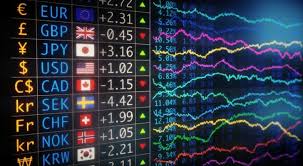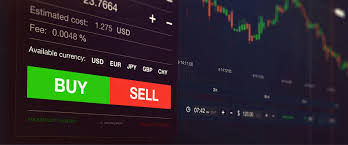Forex trading has become increasingly popular among investors looking to diversify their portfolios and explore new financial markets. The role of trading brokers in this domain is pivotal, providing traders with the platforms and tools they need to execute trades successfully. Whether you’re a novice or an experienced trader, understanding how to choose the right broker can significantly impact your trading experience. For further insights, you might want to explore trading brokers forex https://tradingplatform-hk.com/ for resources and tools that can aid in your trading decisions.
What is Forex Trading?
Forex, short for foreign exchange, is the global marketplace for trading national currencies against one another. Forex trading occurs 24 hours a day, five days a week, and is the largest financial market in the world by traded volume. Traders engage in buying one currency while selling another, capitalizing on fluctuations in exchange rates. But to trade forex, one needs a forex broker.
The Role of Forex Brokers
Forex brokers are intermediaries that facilitate trading in the forex market for retail (individual) and institutional clients. They provide traders with access to trading platforms, where they can view market prices, execute trades, and access various trading tools. Brokers act as a bridge between traders and the forex market.
Types of Forex Brokers
Forex brokers can be categorized into different types based on their business models. The main types are:
- Market Makers: These brokers create a market for traders by providing liquidity and setting bid/ask prices. They earn money through the spread.
- ECN Brokers: Electronic Communication Network brokers connect traders directly with the market, allowing them to trade with other participants. They charge a commission on trades instead of a markup on spreads.
- STP Brokers: Straight Through Processing brokers route orders directly to liquidity providers or the market, often providing tighter spreads.

Factors to Consider When Choosing a Forex Broker
Selecting a forex broker is a crucial step for anyone looking to trade currencies. Here are key factors to consider:
1. Regulation
Ensure that the broker is regulated by a recognized authority. Regulatory bodies, such as the Financial Conduct Authority (FCA) in the UK or the Commodity Futures Trading Commission (CFTC) in the U.S., help protect traders from fraud and ensure fair trading practices.
2. Trading Platforms
The trading platform is the software provided by the broker to facilitate trading. Popular platforms include MetaTrader 4 (MT4) and MetaTrader 5 (MT5). Look for features such as user-friendliness, speed, and analytical tools.
3. Spreads and Commissions

Understanding the cost of trading is vital. Brokers may charge a fixed or variable spread, and some may charge a commission per trade. Evaluate these costs to understand how they will impact your trading profitability.
4. Leverage and Margin
Leverage allows traders to control large positions with a relatively small amount of capital. However, high leverage can also lead to significant losses. It’s essential to understand the leverage offered and the margin requirements to manage risk effectively.
5. Customer Support
Good customer support can make a significant difference in your trading experience. Look for brokers that offer multiple channels of support, including live chat, phone support, and email, as well as comprehensive educational resources.
Education and Resources
A broker that provides educational resources, market analysis, and trading tools can be invaluable, especially for beginner traders. Look for brokers offering webinars, tutorials, and a demo account to practice trading strategies without financial risk.
Popular Forex Brokers in 2023
As of 2023, several brokers are widely recognized for their services and reliability in the forex market:
- IG Group: A well-established broker offering a wide range of trading instruments and strong regulatory oversight.
- OANDA: Known for its user-friendly platform and educational resources, suitable for both novice and experienced traders.
- Forex.com: Another reputable broker, well-regulated and offering a strong trading platform along with a variety of trading tools.
Understanding the Risks
While forex trading can be profitable, it is also associated with substantial risks. Market volatility can lead to significant fluctuations in currency prices. It’s important for traders to develop a risk management strategy, including setting stop-loss orders and not risking more than they can afford to lose.
Conclusion
The forex market offers enormous opportunities, but the choice of a trading broker can significantly influence your success. By understanding different types of brokers, considering essential factors when choosing one, and being aware of the risks involved, you can set yourself up for a successful trading experience. Always continue to educate yourself and stay updated with market trends to make informed trading decisions.

